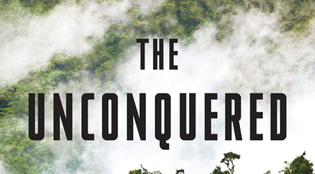 loading
loading
Arts & CultureThe quest for the Arrow PeopleBook review Bruce Barcott writes on environmental issues for National Geographic and Yale Environment 360.  View full imageFor most of the past century, Brazilian backwoods explorers known as sertanistas blazed trails through the jungle to find primitive tribes, introduce them to the modern world, and inadvertently kill them. The motives of the sertanistas varied. Many went into the jungle in the name of science; others for humanitarian reasons; some sought glory. In any case, the result was often the same. The tribes, having evolved in isolation from modern diseases, had no immunity and succumbed in heartbreaking numbers. In the 1980s a charismatic sertanista, Sydney Possuelo, pushed for a “no-contact” policy and for creation of the Javari Valley Indigenous Land, a section of jungle about half the size of Florida, from which outsiders and their germs are forbidden. Possuelo’s success has made him a hero to indigenous advocates and a villain to ranchers, loggers, and industrialists. Said an admirer: “What’s the global population—six billion? One person stands between those six billion and the 40 or so groups of uncontacted Indians. That one person is Sydney Possuelo!” In 2002, National Geographic writer Scott Wallace joined Possuelo for a most unusual expedition. Possuelo, who was then an official with FUNAI, the Brazilian government’s Indian agency, planned to lead a squad of 34 men into the Indigenous Land to investigate an uncontacted tribe known as theflecheiros, the Arrow People. There would be hardship. There would be danger. And there would be an extremely difficult directive: the expedition was to determine the extent of the flecheiros’ territory (the better to protect it) without contacting the tribe. Nearly ten years later, Wallace has turned that journey into The Unconquered, a gripping adventure tale that wrestles with the moral issues of conservation, exploitation, and the unintended consequences of indigenous contact. It also takes us, via the heroic and slightly mad figure of Sydney Possuelo, into a modern-day version of Conrad’s Heart of Darkness. Wallace had met Possuelo only briefly, ten years earlier. But an acquaintance described him as “a cross between Jesus Christ and Che Guevara.” That’s not far off. As the expedition makes its way up the Itaquai River, a tributary of the Amazon, Possuelo is heralded as a savior at each riverside village. He savors the role. Wallace describes Possuelo’s ability to captivate an audience with his “vital energy and actor’s repertoire of gestures and gesticulations.” He also possesses a Houdini-like ability to survive the backcountry’s perils:
When the river grows shallow, the men abandon their boats and proceed on foot. “We’re going in the jungle for three months,” Possuelo’s right-hand man announces. “Make your stuff last.” Wallace is masterful at bringing the reader with them. He shows us the troops making camp with machetes and rope (“men were putting steel to wood, dragging long poles through the clearing and fashioning the simple structures that would shelter them for the coming night”), cooking supper, and slogging through the endless undergrowth (“it felt as though we were walking on the bottom of the ocean”). The passages fairly sweat and itch with the agonies of the journey. When, at long last, we enter the country of the Arrow People, the action turns positively cinematic. The flecheiros play a frightening cat-and-mouse game with the interlopers, shadowing them for days, leaving clear signals of displeasure. When Possuelo encounters a freshly broken sapling dangling from a shred of bark, he stops. “This is universal language in the jungle,” he tells Wallace. “It means “Stay out. Go no farther.’” Agitated by the expedition’s presence, the Arrow People gear up for war, brewing up pots of curare poison in which to dip their arrows. Possuelo’s men are armed but under strict no-shoot orders: their rifles are to be fired into the air, to scare only. Fear takes hold. When two men go missing, members of the expedition call out into the forest: “Please don’t kill our friends with your arrows!” “Our exotic fact-finding mission suddenly had become a run for our lives, the hunters now the hunted,” writes Wallace. Wallace, of course, survived to write the book. And in fact the near-death scrape with the Arrow People provided Sydney Possuelo with valuable information about the tribe. “Here the Arrow People are living well,” Possuelo said. “They hunt, they fish, they grow food. They must be healthy. Their babies are probably fat; their mothers must have lots of milk. They have feasts. They are happy. They don’t ask anything from the white man. They don’t need us!” The preservation of uncontacted tribes, Wallace writes, goes hand in hand with environmental protection in Brazil. “What enabled tribes to prosper in isolation from the global economy was a healthy and intact environment from which they derived their livelihood. In protecting the isolated tribes, as Possuelo had said, he was protecting enormous stretches of primeval forest.” The Arrow People and other uncontacted tribes, in other words, function like umbrella species. As long as their people and habitat are protected, all species in the reserve remain immune from the outside world as well. That protection comes at a price, however. By the end of the expedition, Wallace describes Possuelo as slipping toward madness. He’s dispirited, undergoes extreme mood swings, even fires one of his most loyal men for a ridiculously minor infraction. Possuelo eventually recovered, and served another four years at FUNAI before being fired in a falling-out with his superiors. He then formed his own organization to focus on trans-boundary alliances among indigenous rights groups. To this day he remains the South American Indians’ greatest advocate. “The isolated Indians must live,” Possuelo wrote last year. He believes, Wallace writes, that “there will be no pardon for us if we allow them to disappear.”
The comment period has expired.
|
|